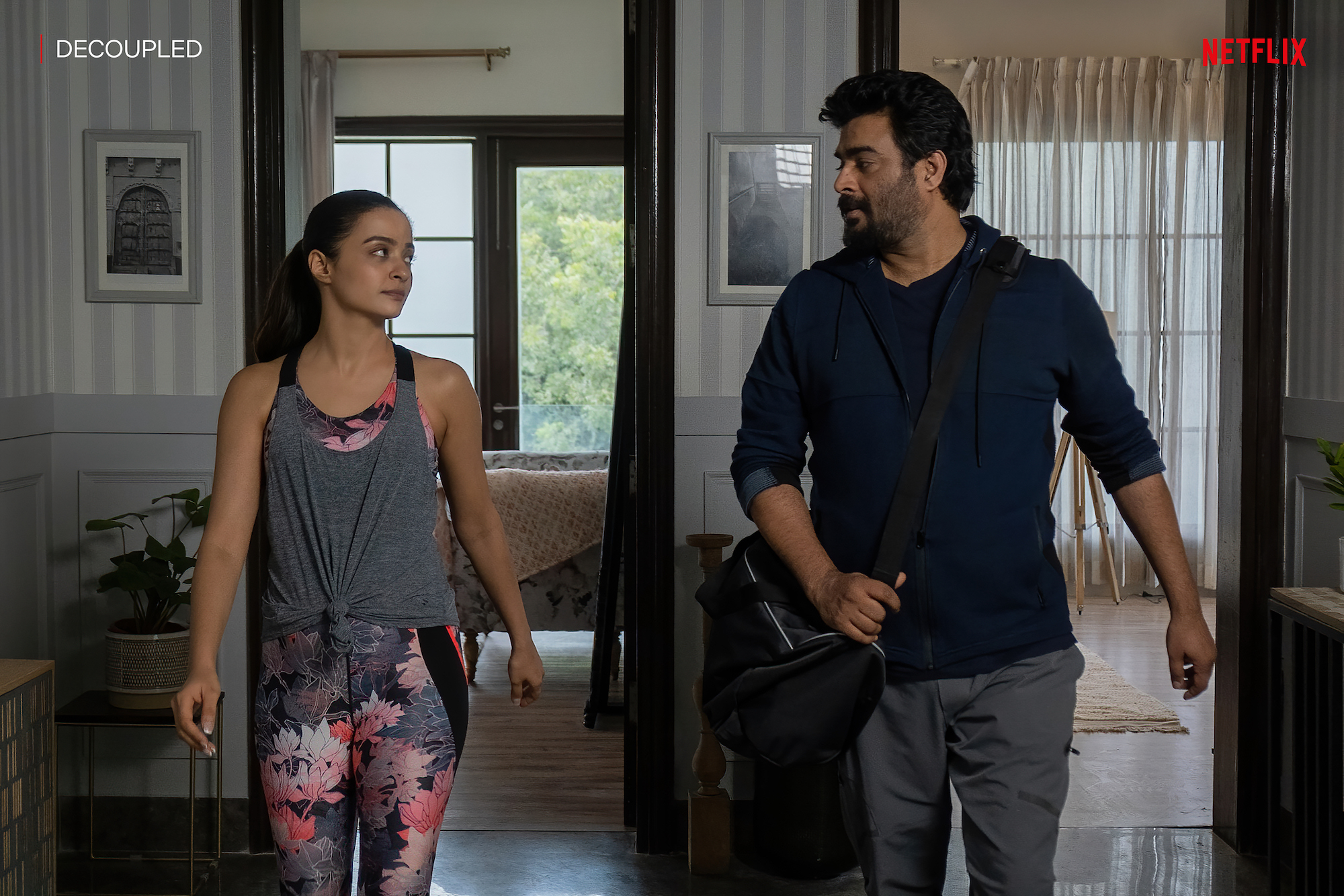Netflix said on Wednesday it will roll out 41 Indian films and shows this year, its biggest annual roster of Indian content to date, as the American giant makes further push to win subscribers in the world’s second largest internet market.
The streaming giant, which committed to spending about $420 million on locally produced Indian content in 2019 and 2020, is this year spending significantly more on the new Indian catalog, which is three times larger than the past two years combined.
The new titles feature high-profile Indian actors and directors including Madhuri Dixit, Karan Johar, Manoj Bajpayee, R. Madhavan, Raveena Tandon, Neena Gupta, and Dhanush.
The new roster includes “Bombay Begums,” which follows stories of five women across generations wrestling with desire, ethics, and personal crises, “Decoupled,” a comedy by writer Manu Joseph on India and marriage, and a second season of Emmy-winning drama “Delhi Crime.”
Also in the list are comedy specials that have become immensely popular on streaming services in India. Netflix said comedians including Sumukhi Suresh, Aakaash Gupta, Rahul Dua, and Prashasti Singh — all of whom have participated in comedy shows by Amazon Prime Video — will have shows on the streaming service this year.
Kota Factory (a still from which is pictured above), a show that debuted on YouTube about a group of students preparing to compete to get into the prestigious engineering colleges, will stream its second season on Netflix later this year. The Viral Fever, the producer of the show, had collaborated with Indian edtech startup Unacademy, for the first season of the show.
Dice Media’s “Little Things”, which also began its life as native advertisement for a few firms but has since grown into its own show, is getting a fourth season this year.
“Our upcoming lineup features more variety and diversity than we have seen before. From the biggest films and series, to gripping documentaries and reality, and bold comedy formats. We are taking our next big leap in India to bring you more than 40 powerful and irresistible stories from all corners of the country,” said Monika Shergill, Vice President of Content at Netflix India.
“This is just a taste of the films and series to come. We are so excited to share these rich and diverse stories from the best and brightest creators and talent from India to the world,” said Shergill.

R. Madhavan and Surveen Chawla in a still from Netflix’s upcoming show “Decoupled.” (Netflix)
Netflix’s growing catalog in India comes as Bollywood, which churns out more movies than any other film industry, struggles to deliver big hits as theatres across the country report low footfall amid the coronavirus pandemic.
Last year, the Indian film industry began releasing some movies directly on streaming services even as some key players are still resisting the idea.
Widely influential director and producer Karan Johar said at Netflix’s virtual press conference that streaming services are increasingly reaching the level of scale in India that the next “Kuch Kuch Hota Hai” — one of the biggest Indian blockbuster films, and also one directed by Johar — can release directly on Netflix.
Thanks to the availability of some of the world’s cheapest mobile data and proliferation of low-cost Android smartphones, more than half a billion Indians came online in the past decade, much of it in the last five years.
YouTube reaches more than 450 million internet users in India, TechCrunch reported in January. (India’s IT Minister Ravi Shankar Prasad corroborated the figure at a press conference last month.) Disney’s Hotstar has amassed over 30 million paying subscribers in India. Media consulting firm MPA estimates that Netflix has about 5 million subscribers in India, a figure that has grown in recent years as the streaming service inked a deal with India’s largest telecom operator Jio Platforms.
Netflix’s growing focus on India also comes at a time when New Delhi is getting more involved with the nature of content on on-demand streaming services. Until now Netflix and other streaming services have operated in India without having to worry too much about censorship. But that’s changing, according to new rules announced by India last week.
“The category classification of a content will take into account the potentially offensive impact of a film on matters such as caste, race, gender, religion, disability or sexuality that may arise in a wide range of works, and the classification decision will take account of the strength or impact of their inclusion,” the new rules state.
Amazon issued a rare apology to viewers in India on Tuesday after some people — including lawmakers with governing Bhartiya Janata Party — objected to some scenes from its political mini-series “Tandav.” Netflix, itself, has faced some heat, too. A police case was filed against two top executives of Netflix, including Shergill, after some people objected to scenes of the show “A Suitable Boy.”

